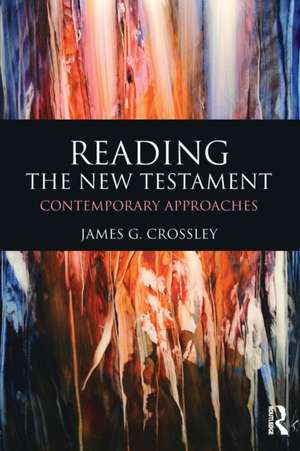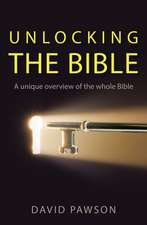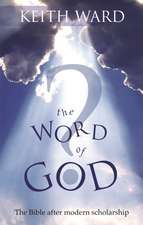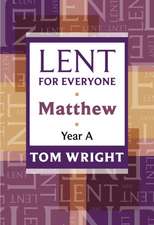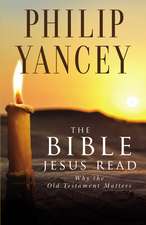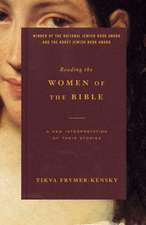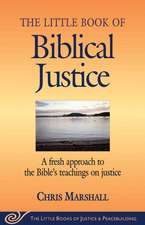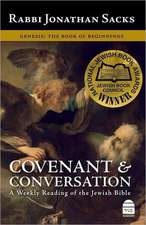Reading the New Testament: Contemporary Approaches: Reading Religious Texts
Autor James Crossleyen Limba Engleză Paperback – 28 mai 2010
Reading the New Testament has been carefully designed to help students think critically and in wide-ranging ways about the texts of the New Testament and will prove a valuable resource for everyone engaged in serious study of the Bible.
| Toate formatele și edițiile | Preț | Express |
|---|---|---|
| Paperback (1) | 350.68 lei 6-8 săpt. | |
| Taylor & Francis – 28 mai 2010 | 350.68 lei 6-8 săpt. | |
| Hardback (1) | 1000.61 lei 6-8 săpt. | |
| Taylor & Francis – 28 mai 2010 | 1000.61 lei 6-8 săpt. |
Preț: 350.68 lei
Nou
Puncte Express: 526
Preț estimativ în valută:
67.12€ • 72.45$ • 56.28£
67.12€ • 72.45$ • 56.28£
Carte tipărită la comandă
Livrare economică 19 aprilie-03 mai
Preluare comenzi: 021 569.72.76
Specificații
ISBN-13: 9780415485319
ISBN-10: 0415485312
Pagini: 200
Ilustrații: 20 black & white halftones
Dimensiuni: 156 x 234 x 13 mm
Greutate: 0.32 kg
Ediția:1
Editura: Taylor & Francis
Colecția Routledge
Seria Reading Religious Texts
Locul publicării:Oxford, United Kingdom
ISBN-10: 0415485312
Pagini: 200
Ilustrații: 20 black & white halftones
Dimensiuni: 156 x 234 x 13 mm
Greutate: 0.32 kg
Ediția:1
Editura: Taylor & Francis
Colecția Routledge
Seria Reading Religious Texts
Locul publicării:Oxford, United Kingdom
Public țintă
Postgraduate and UndergraduateCuprins
Acknowledgements 1. Introduction: How to Read the New Testament Part 1: History 2. Reading Historical Documents Historically: From Historical Criticisms to Literary Criticisms and Back Again 3. Contemporary Historical Approaches to the New Testament: Identity and Difference 4. Applying Methods Old and New 5. The Quest for the Historical Jesus Part 2: Revolutionary Origins of Christian Beliefs? 6. The New Testament and the Origins of Major Christian Theological Ideas 7. Paul, the Law, Faith and Salvation: Old Perspectives, New Perspectives, Different Perspectives 8. Paul's Revolution for Our Times? Paul and Continental Philosophy Part 3: Reception 9. What is 'Reception History'? 10. Methods and Questions in Reception History 11. How to Read New Testament Scholarship Part 4: Extracts from New Testament Scholarship
Recenzii
'This is an outstanding introduction to the New Testament, and especially to the many varied ways in which it is being interpreted in contemporary scholarship. It is the only introduction known to me which gives a comprehensive introduction to contemporary New Testament scholarship, and it does so with the exemplary clarity needed by elementary students. This also reflects the author’s exceptional learning.' – Maurice Casey, University of Nottingham, UK
'This book is essential reading for students and scholars alike, not only within biblical studies but also in those several fields like philosophy, critical theory, and psychoanalysis which have become aware once more that there is no critique of Western culture without a reworking of biblical traditions and their place in this legacy.
James Crossley has emerged as one of the most brilliant and productive of a new generation of biblical scholars able to articulate the profound significance of understanding biblical traditions for contemporary political and cultural analysis. Those who learn to read the New Testament with Crossley will discover not only the original culture within which the New Testament writings were written but also contemporary politico-cultural contexts from which new and often explosive interpretations continue to emerge.
Crossley’s book is a call for contextually engaged reading and creative rethinking of biblical texts and their ongoing life in a post-secular culture. There are many good introductions to the New Testament on the market today, but Crossley’s is the only one that is absolutely essential.' – Ward Blanton, University of Glasgow, UK
'This book is essential reading for students and scholars alike, not only within biblical studies but also in those several fields like philosophy, critical theory, and psychoanalysis which have become aware once more that there is no critique of Western culture without a reworking of biblical traditions and their place in this legacy.
James Crossley has emerged as one of the most brilliant and productive of a new generation of biblical scholars able to articulate the profound significance of understanding biblical traditions for contemporary political and cultural analysis. Those who learn to read the New Testament with Crossley will discover not only the original culture within which the New Testament writings were written but also contemporary politico-cultural contexts from which new and often explosive interpretations continue to emerge.
Crossley’s book is a call for contextually engaged reading and creative rethinking of biblical texts and their ongoing life in a post-secular culture. There are many good introductions to the New Testament on the market today, but Crossley’s is the only one that is absolutely essential.' – Ward Blanton, University of Glasgow, UK
